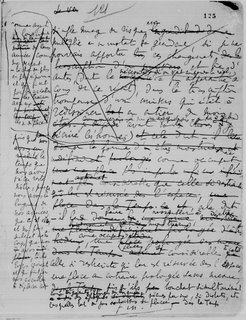Yes, ladies and gentlemen, we are here tonight, and we must remember that music is the -- one of the beautiful things of life. So we have to try to keep the music alive some kind of way. And maybe music can help. I don't know, but we have to try something these days, right? [Sonny Rollins, Without a Song: The 9/11 Concert, recorded September 15, 2001]
Sonny Rollins at the Tryon Festival Theatre
Krannert Center for the Performing Arts
University of Illinois, Urbana
October 29, 2006
Sonny Rollins, tenor saxophone
Clifton Anderson, trombone
Bobby Broom, electric guitar
Bob Cranshaw, electric bass
Victor Lewis, drums
Kimati Dinizulu, percussion
Salvador (Rollins)
Serenade (Mario - Drigo)
Why Was I Born? (Kern - Hammerstein II)
They Say It's Wonderful (Berlin)
Global Warming (Rollins)
Sonny, Please (Rollins)
Don't Stop the Carnival (Rollins)
I heard Sonny Rollins 17 years ago -- the greatest musical performance I've ever heard. When I read that he was coming to the Krannert Center at the University of Illinois, my first impulse was not to go. Nothing, I thought, could match the performance I'd heard. But go I did, and I'm very glad.
Sonny Rollins is 76, but the only visible evidence of his age is a Fred Sanford gait. Rollins' long face and full beard make him look like a Biblical patriarch or a figure from an El Greco painting. His sunglasses, loose dark-blue shirt, and red pants make him look like Sonny Rollins. His performance last night was filled with countless bright moments of excitement and surprise, spread across two hours of music: three calypsos ("Salvador," "Global Warming," and "Don't Stop the Carnival"), two great standards, a funky modal piece ("Sonny, Please"), and a beautiful out-of-the-way treasure, Riccardo Drigo's "Serenade," from the 1900 ballet
Les Millions d'Arlequin.
"Serenade" was for me one of the great moments from this concert. In an online interview, Rollins remembers this melody as introducing "some kind of radio show" from his youth; last night he described it as "an old Italian folksong" that someone "on the wrong side of 40" might know. (I didn't.) "Serenade" is a beautiful waltz melody; like Dvorak's "Humoresque," it sounds as though it was made for jazz musicians to play on (especially with Rollins' reharmonization of the first eight bars). Another favorite moment from last night: "Why Was I Born?" I've listened to the performance of this song from
The 9/11 Concert many times in the last few weeks and was thrilled to hear an even more exciting performance of it last night.
Rollins' solos are like entries in the
Oxford English Dictionary: lengthy, thorough, discerning, leaving no nuance unexamined. And like
OED entries, they are filled with bits of cultural history. Rollins quoted "Oh! Susanna" several times (as on
The 9/11 Concert); "52nd Street Theme," "Lester Leaps In," "My Romance," "Rhythm-a-ning," and "Scrapple from the Apple" also turned up in his solos. "They Say It's Wonderful" had a honking moment from "Here Comes the Bride" (the "Bridal Chorus" from Wagner's
Lohengrin).
Clifton Anderson -- who when I last saw him played opening and closing themes and only the most modest solos -- has become a worthy second horn, playing with great authority. Bobby Broom is an inventive guitarist, but his sound was often lost in the sonic mud of Bob Cranshaw's bass (whose amp must've been turned up to eleven). Victor Lewis is a drummer of great energy and taste, and Kimati Dinizulu's tuned percussion added detail and texture. Dinizulu contributed the most unexpected moment to the night's proceedings -- an long, understated, melodic solo on "Serenade."
What made this concert especially wonderful for me was the chance to go to it with my daughter Rachel. She was a tyke stuck at home with a babysitter the last time Sonny Rollins came our way. And now she can dig jazz! (Thanks for coming, kiddo.)
Sonny Rollins' new CD,
Sonny, Please, is not yet in stores but is available online and at Rollins' performances.
Sonny Rollins (website)
Sonny, Please (CD)
















